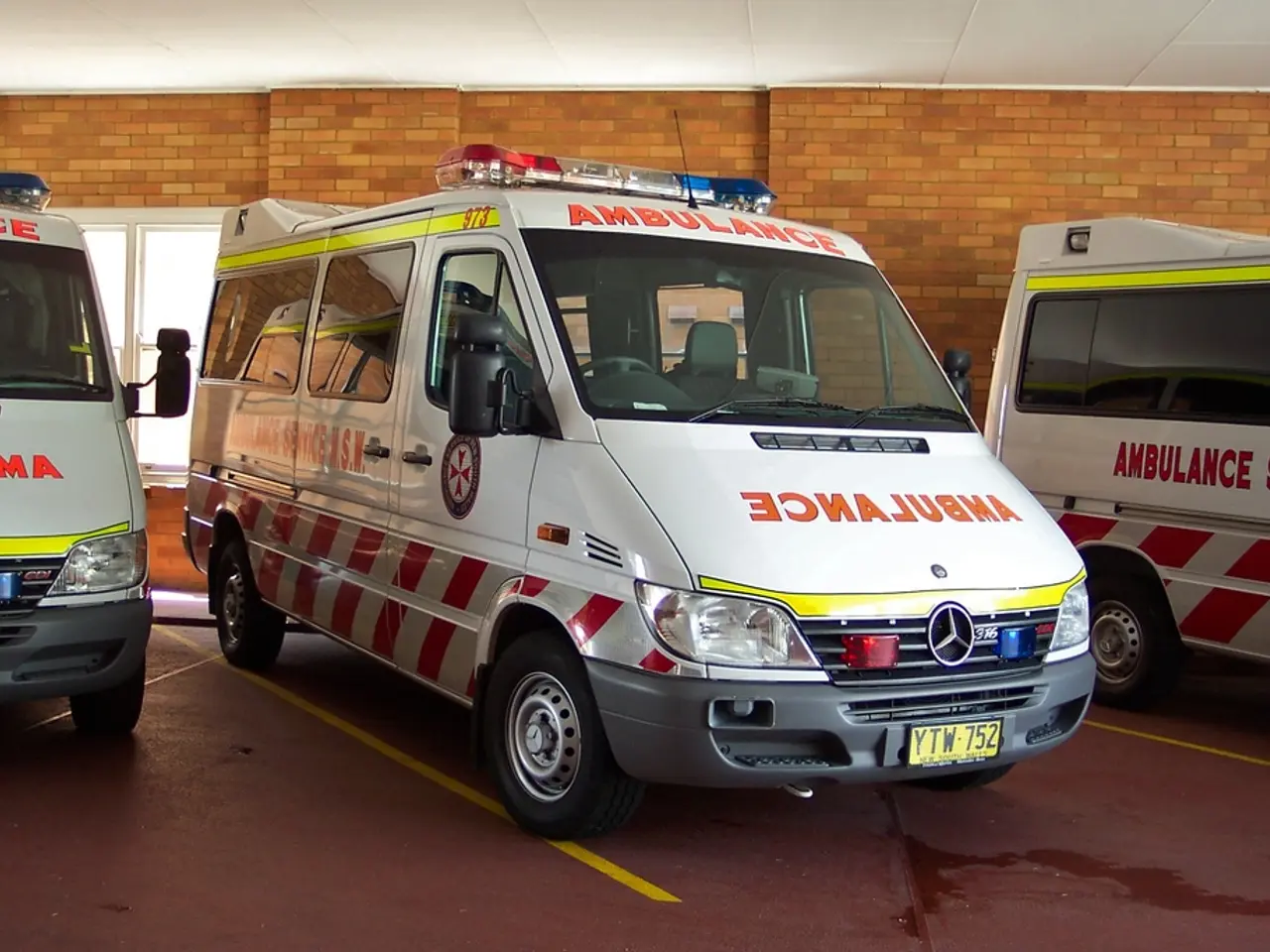In the wake of a disastrous DC 911 system error five years ago, the emergency response systems across America continue to grapple with heavy workloads and underspending
In the realm of emergency response, 911 dispatchers play a vital role, yet they often face numerous challenges that can potentially compromise the quality of service.
Recent surveys suggest that a staggering 88% of NENA respondents have reported some type of equipment outage in the past year, leaving dispatchers scrambling to respond to emergencies. This issue is not isolated to a few regions, as it affects dispatch centers nationwide.
One such instance occurred in Atlanta, Georgia, where medics were dispatched to 414 Oglethorpe Northwest due to a mix-up. The address was nearly a mile and a half away from the actual location, costing critical minutes in a life-or-death situation.
The lack of proper training is another significant concern. Ty Wooten, the director of government affairs for the International Academies of Emergency Dispatch, states that training in the industry is varied. Some dispatchers receive extensive classroom training, while others are thrown into the job with minimal training. This inconsistency can have dire consequences, as was the case for Billie Shepperd, who was planning her daughter Sheila's 60th birthday party in June 2020. When Sheila fainted and stopped breathing, her granddaughter Maria called 911 for help. Unfortunately, Sheila died that day.
The quality of training is a matter of concern even in accredited programmes. The OUC's training, for instance, is accredited by the Association for Public Safety Communications Officials, but concerns about the quality of training remain. Dave Statter, a former reporter who closely tracks DC's 911 system, believes the agency "ran people through quickly with shorter training, and the full training wasn't up to par."
Addressing these issues requires a multi-faceted approach. Some regions and companies are taking matters into their own hands. Collier County, Florida, for example, has transitioned to the NG911 system and has backup centers with Charleston, South Carolina, to support each other during outages. Other centers are piloting artificial intelligence tools to assist call takers in real time and flag errors before they're dispatched.
However, these reforms remain piecemeal and isolated to places with political will and financial resources. Nationally, there are no mandates for training requirements, staffing, and technology. This leaves many rural areas relying on distressed callers to describe cross-streets and landmarks, increasing the chances of errors.
Mental health resources for dispatchers are crucial to combat burnout and minimize staffing shortages. Wooten emphasizes the importance of these resources, stating that they are vital in maintaining the well-being of dispatchers and ensuring they can continue to provide essential services.
Despite their crucial role, 911 dispatchers are not recognized as public safety professionals or first responders by the federal government. This lack of recognition can hinder efforts to improve training, staffing, and technology for these essential workers.
In Idaho, the Idaho Office of Emergency Communications is responsible for improving emergency call centers. However, in Lemhi County, if the sole dispatch center goes down, 911 calls go unanswered. This highlights the urgent need for improved infrastructure and training for 911 dispatchers.
The scramble to fill seats for dispatcher positions is so urgent that some advocates believe dispatchers are rushed through training, potentially compromising the quality of emergency response. This underscores the need for consistent, high-quality training programmes for 911 dispatchers to ensure they are equipped to handle the challenges they face every day.
In conclusion, while 911 dispatchers play a vital role in emergency response, they face numerous challenges that can compromise the quality of service. Improved infrastructure, consistent training programmes, and recognition as public safety professionals are crucial steps towards ensuring that 911 dispatchers can continue to provide the essential services they offer.








